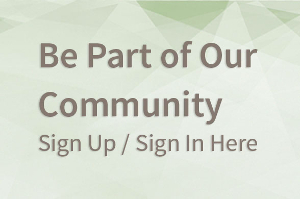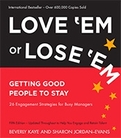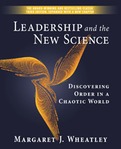BK Blog Post
Berrett-Koehler is well known for its organizational development books in its BK Business agenda. Here is a a good introduction to the subject.
(abridged from book Organization Development by Gary McLean)
Welcome to the world of organization development (OD)! Every reader of this article comes with multiple experiences in organizations - from your family to your schools; churches, synagogues, temples, and mosques; workplaces; charitable organizations; government agencies; sports teams; social clubs; labor unions; and so on. Some of these experiences have probably been positive, while some have probably been negative. That's the nature of the world in which we live.
What Is An Organization?
An informal definition can include any situation in which two or more persons are involved in a common pursuit or objective. Given the broad-ranging and all-encompassing definitions, it is easy to understand the complexity of OD and the large number of situations in which it can be applied.
Now, as you begin to think about your experience in past and current organizations, quickly jot down some of the positive and negative experiences you have encountered. Use two columns, with the positive in one and the negative in the other. By doing this, you are already using the early stages of one of the tools of OD, called a force field analysis. An OD consultant, along with others in the same organization, might use a list like this to determine how people in that organization feel about what is and what is not going well. This, too, is a part of the OD process of doing an organizational analysis or a needs assessment. The OD professional might use such lists to work with the organization in finding ways to build on the positives and to overcome the negatives.
The field of OD is not regulated, except through ethics statements developed by professional organizations. As a result, anyone interested can practice what he or she might label as OD, even though the field might take exception to the accuracy of such a statement. But there is no recourse. Thus, one of the real challenges of the field is that some people who call themselves OD consultants or professionals (these terms are often used interchangeably and do not indicate whether the person is employed by the organization or is a self-employed person or a person employed by a consulting firm) is that they operate with a narrowly defined "toolbox" - a set of so-called solutions that they apply to every situation. Thus, we experience the "flavor of the month," a situation in which the latest fad is offered to organizations as the solution to all of their problems. Given the ambiguity of OD practice, having a strong theoretical background and functioning with proven models, therefore, become critical for successful and ethical OD practice.
What Is Organizational Development?
Organization development is any process or activity, based on the behavioral sciences, that, either initially or over the long term, has the potential to develop in an organizational setting enhanced knowledge, expertise, productivity, satisfaction, income, interpersonal relationships, and other desired outcomes, whether for personal or group/team gain, or for the benefit of an organization, community, nation, region, or, ultimately, the whole of humanity.
Characteristics of OD
The American Society for Training and Development's OD Professional Practice Area attempted to provide a synthesis of the various definitions by providing the key points that it saw in the range of definitions available. We believe the practice of organization development:
- must be in alignment with organization and business objectives;
- is rooted in the behavioral sciences;
- is long range and ongoing;
- stresses a process orientation to achieve results;
- is based on collaboration;
- is a systems orientation.
The following conclusions can be drawn about the core characteristics of OD:
- OD is an interdisciplinary and primarily behavioral science approach that draws from such fields as organization behavior, management, business, psychology, sociology, anthropology, economics, education, counseling, and public administration.
- A primary, though not exclusive, goal of OD is to improve organizational effectiveness.
- The target of the change effort is the whole organization, departments, work groups, or individuals within the organization and, as mentioned earlier, may extend to include a community, nation, or region.
- OD recognizes the importance of top management’s commitment, support, and involvement. It also affirms a bottom-up approach when the culture of the organization supports such efforts to improve an organization.
- It is a planned and long-range strategy for managing change, while also recognizing that the dynamic environment in which we live requires the ability to respond quickly to changing circumstances.
- The major focus of OD is on the total system and its interdependent parts.
- OD uses a collaborative approach that involves those affected by the change in the change process.
- It is an education-based program designed to develop values, attitudes, norms, and management practices that result in a healthy organization climate that rewards healthy behavior. OD is driven by humanistic values.
- It is a data-based approach to understanding and diagnosing organizations.
- It is guided by a change agent, change team, or line management whose primary role is that of facilitator, teacher, and coach rather than subject matter expert.
- It recognizes the need for planned follow-up to maintain changes.
- It involves planned interventions and improvements in an organization’s processes and structures and requires skills in working with individuals, groups, and whole organizations.
Is OD the Same as Change Management?
In an effort to simplify an explanation of what OD is, some have suggested that OD and change management are the same. I disagree. There are times in the life of an organization where dramatic change is needed—change that does not and cannot rely on the use of OD. The marketplace sometimes requires that an organization take swift and unplanned actions in order to survive. It may require outsourcing domestically or to another country, downsizing, reductions in salaries, and increasing health care costs. Although all of these changes may be absolutely necessary for the survival of the organization, they do not necessarily follow the OD processes, principles, or values. An excellent distinction between OD change and change that does not follow OD principles is discussed in Beer and Nohria (2000). In essence, they argued that there is E change (economic value) and O change (organization’s human capability), one of which is planned and follows OD principles (O), while the other (E) is market driven and does not follow OD principles; both can be included in what many people call change management. So, it is a mistake to equate OD with change management.
The business benefits when both types of change are affirmed within an organization. While long-term, systemwide planning that results in change (the OD model) can be very beneficial for an organization and its bottom line, failure to act quickly and to make immediate decisions, even when those processes violate OD principles, may well result in the demise of the organization.
WHEN AND WHY SHOULD AN ORGANIZATION USE OD?
The field of OD is extremely broad - one of the problems in communicating clearly what the field entails. OD is not a technique or a group of tools, though some OD professionals practice as if it were. Rather, OD can be applied any time an organization wants to make planned improvements using the OD values. OD might be used in any of the following situations:
- To develop or enhance the organization’s mission statement (statement of purpose) or vision statement for what it wants to be
- To help align functional structures in an organization so they are working together for a common purpose
- To create a strategic plan for how the organization is going to make decisions about its future and achieving that future
- To manage conflict that exists among individuals, groups, functions, sites, and so on, when such conflicts disrupt the ability of the organization to function in a healthy way
- To put in place processes that will help improve the ongoing operations of the organization on a continuous basis
- To create a collaborative environment that helps the organization be more effective and efficient
- To create reward systems that are compatible with the goals of the organization
- To assist in the development of policies and procedures that will improve the ongoing operation of the organization
- To assess the working environment, to identify strengths on which to build and areas in which change and improvement are needed
- To provide help and support for employees, especially those in senior positions, who need an opportunity to be coached in how to do their jobs better
- To assist in creating systems for providing feedback on individual performance and, on occasion, conducting studies to give individuals feedback and coaching to help them in their individual development
This is not an exhaustive list--it is suggestive only. But it will give you some idea of the range of activities for which OD professionals might be called on to assist an organization.
OD as a field has thrived because of the value-added concepts and tools that it has brought to organizations and its stakeholders (those concerned with how the organization operates), including customers, stockholders, employees, management, the community, and even the nation. If an OD professional can be helpful in bringing about desired change with a process that uses the values described in the next section, everyone benefits. Organization Development (1991) suggested the following benefits to the use of OD (as opposed to other types of consulting or using individuals within the organization who do not have OD skills): An atmosphere can be established which will support more innovation and creativity, increase job satisfaction, develop more positive interpersonal relationships and foster greater participation in creating plans and defining organizational goals. Systems can help to establish this kind of atmosphere.
All of this will create a more effective and efficient organization that will, consequently, provide higher-quality goods and services at a reasonable price, increase profitability, improve stock values, improve the work environment, and support management in its leadership role.
If you would like to hire Organizational Development experts to consult, train, or speak at your company, non-profit, or government organization, please visit The BK Expert Directory where you can engage with our authors.


 Posted by
Posted by




